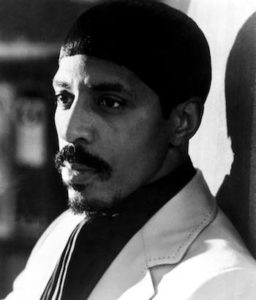
Ike Turner
Ike Turner was born on this date in 1931. He was a Black musician, bandleader, talent scout, producer, and songwriter.
Izear Wister Turner (his birth name) was from Clarksdale, MS, the heart of the segregated South. He was the son of Beatrice Cushenberry and Izear Luster Turner. When Turner was a boy, a mob of angry whites beat his father to death. He grew up in a hostile environment that hardened him. He learned boogie-woogie piano firsthand from his inspiration, Pinetop Perkins, and he talked himself into a DJ slot on the local radio station, where he played everything from the jump blues of Louis Jordan to country & western.
He formed his first band in high school, the Kings of Rhythm. 1951 they traveled to Memphis to record at Sam Phillips' Sun studio. Their first song, "Rocket 88," zoomed to the top of the R&B charts and is regarded today by many critics as possibly the first true rock & roll record. Turner and his band went on to back Howlin’ Wolf, Elmore James, Otis Rush, Robert Nighthawk, Buddy Guy, and Sonny Boy Williamson II, plus various Sun artists. During the early 1950s, Turner switched from piano to guitar and doubled as a talent scout for the Bihari Brothers' Los Angeles-based Modern Records, where he helped get early breaks for artists like Howlin' Wolf and B.B. King. During the mid-50s, Turner moved the Kings of Rhythm to East St. Louis.
Adopting a revue format for their live performances, the Kings of Rhythm worked with a revolving group of vocalists during this period. One was a teenage singer from Tennessee named Anna Mae Bullock, who met Turner in 1956. She joined the revue and moved into Turner's house after becoming pregnant by the band's sax player; soon, she and Turner began their relationship and had a child of their own, marrying in 1958; Bullock became Tina. His new (and latest) wife got her first chance to sing lead on a recording in late 1959, cutting "A Fool in Love" for the Sue label.
Turner realized he'd discovered a potential breakout star and reshaped the band into the Ike & Tina Turner Revue, with Tina now the act's centerpiece. It took a little time for all involved to get their bearings, but in the meantime, the hits kept coming; "I Idolize You," "It's Gonna Work Out Fine," "Poor Fool," and "Tra La La La La" all hit the R&B Top Ten, a string that ran through 1962. As Ike & Tina became one of the hardest-working, most popular acts on the so-called chitlin' circuit, the temptations of fame were proving too much for Turner; he developed a severe cocaine addiction that, when mixed with his dominant personality and quick temper, made for a volatile combination.
According to Tina's autobiography, Turner grew increasingly violent, beating her frequently and even burning her with cigarettes and coffee if she got out of line. Turner had a widespread reputation for being difficult. When producer Phil Spector attempted a commercial comeback around Tina in 1966, he struck a deal with Turner. In exchange for being allowed to record Tina, Ike would receive full credit and billing on the records, but Ike would also not be allowed to set foot in the studio or to meddle with the finished recordings.
This collaboration with Tina produced the epic "River Deep - Mountain High," one of rock's greatest singles. In 1969, Ike & Tina were invited to open for the Rolling Stones, and Turner realized that changing times had made the Revue's rough, nasty brand of soul music palatable to white rock audiences. Accordingly, Turner incorporated contemporary rock & roll covers into the Revue's repertoire, giving them a new lease on life. Versions of "Come Together," "I Want to Take You Higher," and "Proud Mary" revived Ike & Tina's chart. However, Turner's off-stage problems were taking their toll on the act; 1973's "Nutbush City Limits," a song by Tina, would be their last major hit, and Tina walked out on him in the middle 1975 tour. The divorce was finalized the following year, and Ike never recovered from the loss.
For a while, he quit touring to settle in and run the recording studio, Bolic, which he'd opened in Los Angeles in 1970. Turner's cocaine addiction drained most of his finances, and his recording studio burned to the ground in 1982. He ran afoul of the law and was arrested numerous times on mostly drug-related offenses. When he and Tina were jointly inducted into the Rock and Roll Hall of Fame in 1991, he could not attend the ceremony because he was serving prison time.
When Tina's autobiography was adapted into the 1993 film "What's Love Got to Do With It," Turner signed away all of his rights, allowing the filmmakers to take narrative liberties for dramatic effect. Turner attempted a comeback after being released from prison; he also remarried and overcame his addictions to live a clean, sober life.
His autobiography, "Takin' Back My Name," was published by a U.K. company in 1999, and in 2001, he released a new album, "Here and Now," which was nominated for a Grammy in the Best Traditional Blues Album category; it was also nominated for several W.C. Handy Awards (the blues equivalent of the Grammys) and took honors for Comeback Album of the Year. "Risin' with the Blues," released five years later, was nominated for a Grammy in the same category. Ike Turner died on December 12, 2007.